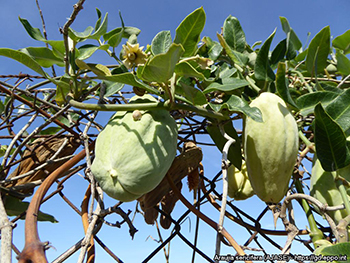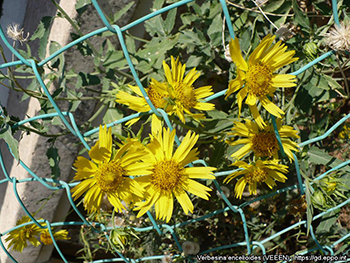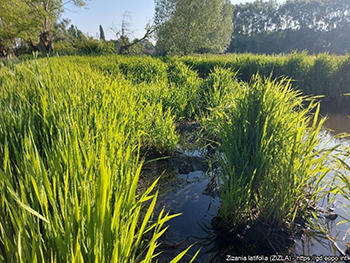
29th Meeting of the EPPO Panel on Invasive Alien Plants
Paris, 2024-05-15/17
The 29th meeting of the EPPO Panel on Invasive Alien Plants was held at the EPPO Headquarters in Paris on 15 – 17th May 2024. The Panel members presented updates from their countries on activities concerning invasive alien plants.
Re-prioritization of Observation List species
The Panel finalised the work on re-prioritization of species which have been on the EPPO Observation List for five years or more. In 2023, ten species were re-prioritized and this year the final five applicable species were assessed. The Panel agreed that Akebia quinata, Cenchrus incertus, Eragrostis curvula and Verbesina encelioides should be maintained on the Observation List, whereas Araujia sericifera should be transferred to the EPPO List of Invasive Alien Plants due to recent publications detailing negative impacts.

Araujia sericifera fruits and flowers
Courtesy: Iñigo Sánchez

Verbesina encelioides
Courtesy: Sarah Brunel (EPPO)

Zizania latifolia colonizing river banks in Belgium
Courtesy: Indra Jacobs
Pest Risk Analysis (PRA)
The Panel reviewed the draft PRA on Zizania latifolia and agreed with the assessment of the Expert Working Group, and considered this species was an important species with negative impacts within the EPPO region. The Panel recommend the PRA should be sent to the EPPO Working Party on Phytosanitary Regulations (WPPR) for approval for listing as an EPPO A2 pest.
The next species for PRA in 2024/25 will be Euphorbia davidii. E. davidii is an annual species native to North America. It can form dense stands in agricultural areas. There are observations from Serbia that the presence of dense patches of E. davidii can have a negative effect on the size of maize plants and can initiate early ripening of sunflower heads.
Standards
The Panel considered country comments on the new draft PM 3 Inspection Standard entitled Inspection of invasive alien plants at borders. This Standard is developed jointly by this Panel and the EPPO Panel on Phytosanitary Inspections. The Standard describes inspection procedures for consignments of plants for planting imported with soil or other growing medium (and aquatic plants with water) to avoid the import of regulated invasive plants. The Panel finalised the draft and recommend that it is sent to the EPPO Working Party on Phytosanitary Regulations for approval.
A draft PM 9 Standard on Solanum carolinense will also be sent to the WPPR for approval.
The Panel discussed new Standards that could be developed. The Panel agreed that a PM 9 Standard on Z. latifolia should be a priority and agreed this could be developed in 2024/25.
Bamboo species in the EPPO region
The Panel reviewed the first draft of a manuscript for the EPPO Bulletin on bamboo species in the EPPO region and their potential invasiveness. Over 40 species of bamboo have been assessed and those that met three specific criteria were prioritised using the EPPO Prioritization Process for invasive alien plants. The three criteria are:
- The bamboo species should be naturalized in at least one EPPO country,
- The species should have a running dispersal behaviour,
- There is evidence of invasive behaviour.
The manuscript will be further developed during 2024.
